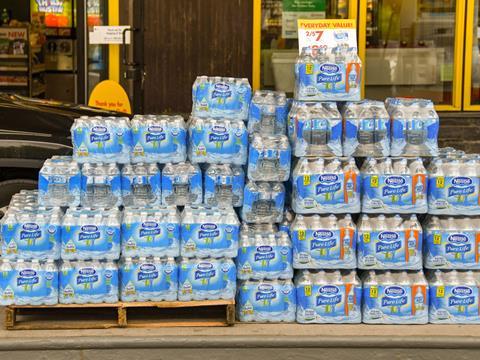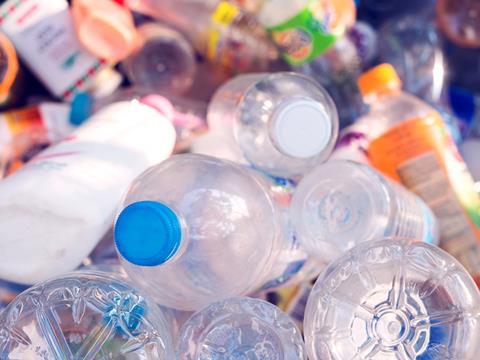
Key players from across the packaging value chain have signed the European Plastics Pact, despite some industry associations expressing their concern.
The European Plastics Pact, initiated by France and the Netherlands, focuses on accelerating the transition towards a circular plastics economy and aims to stop the “sole dependence” on virgin plastics.
The Pact brings together leading companies, as well as NGOs and governments, who are committing to realise common goals by 2025 and go beyond the current legislation. These European targets include: Reducing virgin plastic products and packaging by at least 20%, raising collection and recycling capacity in Europe for plastic packaging by at least 25%, and boosting the use of recycled plastics in packaging to an average of at least 30%.
Nestlé hopes that its membership of the Pact will help it to achieve its own targets of 100% recyclable or reusable packaging and a reduction in the use of virgin plastics by one third by 2025.
Marco Settembri, Nestlé CEO for EMENA commented: "We are pleased to sign the European Pact. One of our joint objectives is to create a circular economy by improving collection, sorting and recycling schemes across Europe. In the UK, Buxton made an important announcement that their whole range will be made from recycled plastic next year. We want to make sure that other packaging, such as our wrappers and pouches, can also be recycled into new food packaging.”
The company recognizes that, in order to achieve a consistent supply of food-grade recycled plastics, recycling processes will have to evolve. Nestlé says that this is a “top priority”, but it remains to be seen how much of the company’s recent €1.68 billion investment in sustainable packaging practices will be allocated for this purpose.
Other organisations from across the packaging value chain that have also become signatories of the European Plastics Pact include: Unilever, FrieslandCampina, Evertis, Flexfilm, Henkel, Neste, Schneider Electric, Suez, Tomra, and Veolia.

Meanwhile, two industry associations representing the plastics packaging industry have voiced their concerns.
The German Association for Plastics Packaging and Films, IK, described the pact as “pure actionism”. Ambitious targets for the recycling of plastics are to be welcomed in principle, the association said, as long as they do not threaten the development of a high-quality recycling industry through unrealistic assumptions.
Dr. Isabell Schmidt, IK Managing Director for Circular Economy argued: "Instead of further goals, we need a courageous and energetic design of the framework conditions. While we as an industry are concerned about the recyclability of packaging, politicians should make greater efforts to ensure that plastic waste is collected separately and sent for recycling, otherwise, even the best recyclability of packaging is of no use.
“In this respect, it would be important to enforce an EU-wide ban on landfills and to extend the deposit system for drinks bottles throughout Europe. However, the Plastics Pact remains surprisingly soft on these points," continued Dr. Schmidt.
The IK considers the Plastics Pact's target of 30% of plastic packaging consisting of recycled materials by 2025 to be unrealistic, while also criticising the target of 20% reduction in plastics by 2025: "If the advantages of plastic are not required, it should not be used. Reusable plastic can replace disposable plastic. At present, however, reducing plastics often means substituting them with non-recyclable paper-plastic composites or glass packaging that is questionable from a climate point of view," said Dr. Schmidt.
A trade association of plastics converters in Europe, European Plastics Converters, also voiced its criticisms of the pact.
Alexandre Dangis, EuPC Managing Director said: “Reducing plastic single-use items or increasing recycling targets cannot resolve the issues such as mismanagement of waste or bad behaviours. Pioneering countries are countries that have abandoned landfilling plastics waste that can be recycled and this is not the case for certain signatories of this new Pact. A direct link with Industry Ministries to assess the impacts on the competitiveness of the plastics industry in Europe threatening many jobs is missing but maybe the Circular Plastics Alliance will help to create this assessment.”













